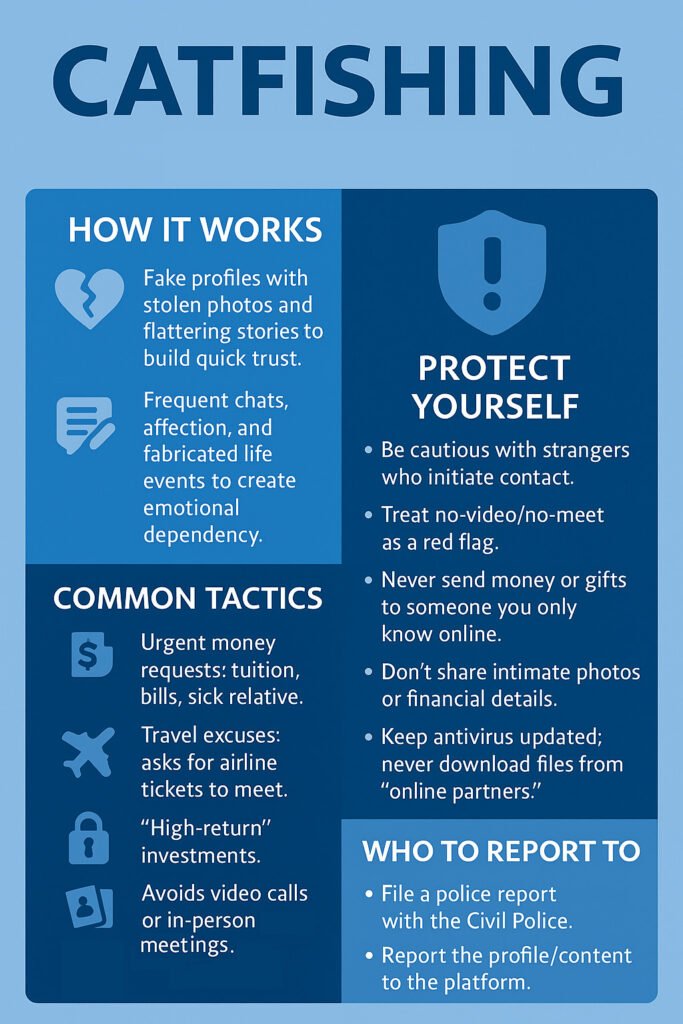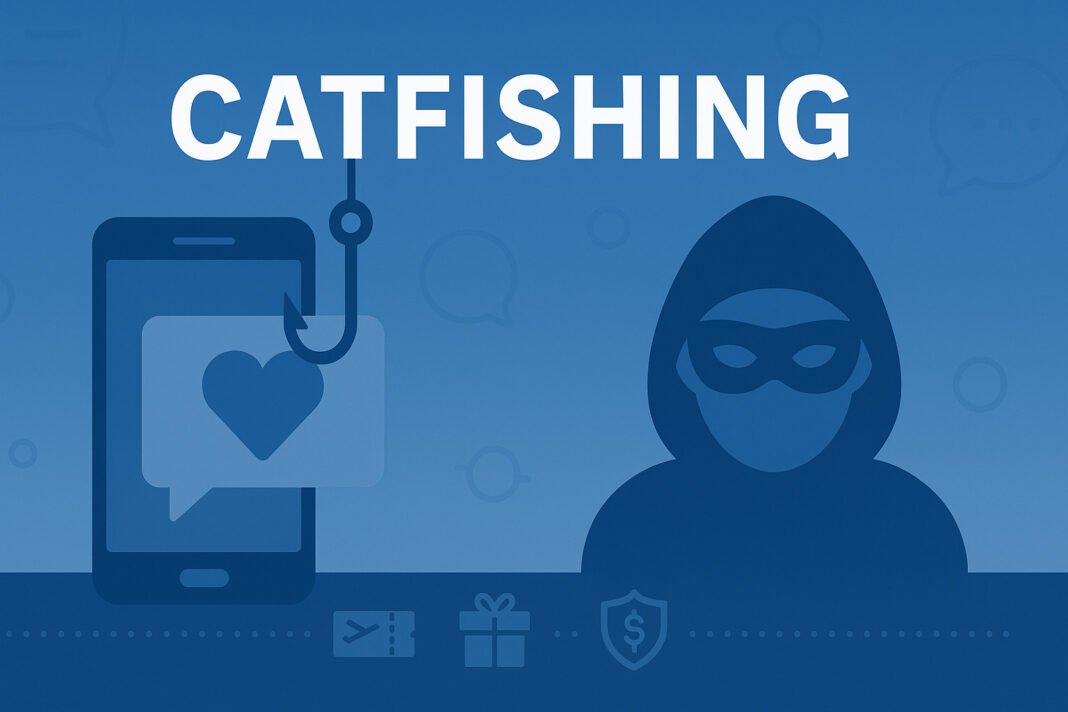Online scams have become increasingly common, demanding greater attention to the links and online content we interact with daily. Cybercriminals are constantly creating new methods to deceive people for financial gain, ranging from falsified payment receipts to fake technician impersonations. In Brazil, around 71% of the population has already fallen victim to this type of crime, which shows the need for caution when clicking on links in WhatsApp messages, emails, or SMS, as well as avoiding sharing personal information with strangers. To reduce risks, it is essential to understand how these scams work, recognize their main types, learn what to do if you are targeted, and adopt preventive measures to protect your data and avoid financial losses.
This article is part of a series on digital security. You can read the other texts here.
Catfishing
This Content Is Only For Subscribers
To unlock this content, subscribe to INTERLIRA Reports.
Romance scams, also known as catfishing, are a growing online threat. Criminals create fake profiles using stolen photos—often portraying successful, attractive people—and approach victims on social media or dating apps. They build trust over time with frequent conversations, affectionate messages, and even fake life stories. However, the goal is not love, but financial or emotional exploitation.
Once trust is established, the fraudster begins asking for money, often citing urgent or emotional situations, such as tuition fees or overdue bills, a relative in financial distress, airline tickets to finally meet in person, or “High return” investment opportunities. In some cases, scammers manipulate victims into sharing intimate photos or personal information, which are later used for blackmail or extortion.
– How to Protect Yourself
• Be cautious of strangers who initiate contact on dating apps or social networks.
• If someone always avoids video calls or in-person meetings, treat it as a red flag.
• Never send money or gifts to someone you have only met online.
• Do not share intimate photos, personal details, or financial information with virtual acquaintances.
• Keep your antivirus updated and avoid downloading files sent by “online partners.”
• Trust your instincts: if a relationship feels rushed or centered on financial problems, it may be a scam.
– Who to Report To
Victims should file a police report with the Civil Police. Although many people feel ashamed to report romance scams, doing so is crucial to stop criminals who often target multiple victims simultaneously.





